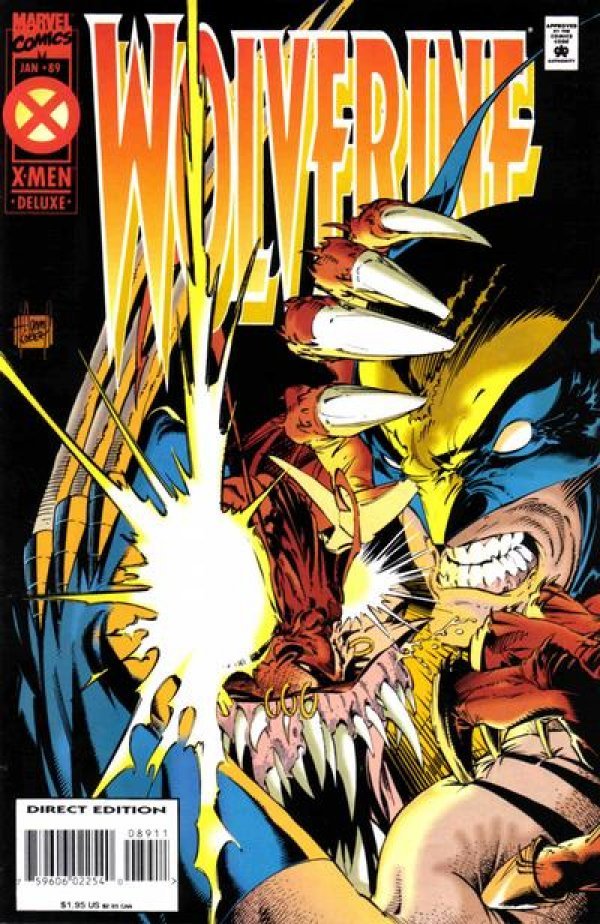Key Features:
Landmark 50th issue
Die-cut cover with faux file folder design
Reveals major elements of Wolverine’s hidden past
Introduces the concept of “Weapon X Files” and sets stage for deeper espionage themes
Key retcon issue in Wolverine lore – classified material hinted for the first time
Direct Edition identified by Spider-Man logo in barcode box
Story Overview:
Logan returns to Canada in search of answers to his fragmented past. This issue dives into the mysterious Weapon X program and Logan's time with Department H. Told through flashbacks and redacted “government files,” the narrative sets the tone for future arcs focused on memory manipulation and covert experimentation. Silvestri’s art blends raw energy with a subtle psychological tension, and the die-cut cover gives the comic a striking, dossier-like presentation.





